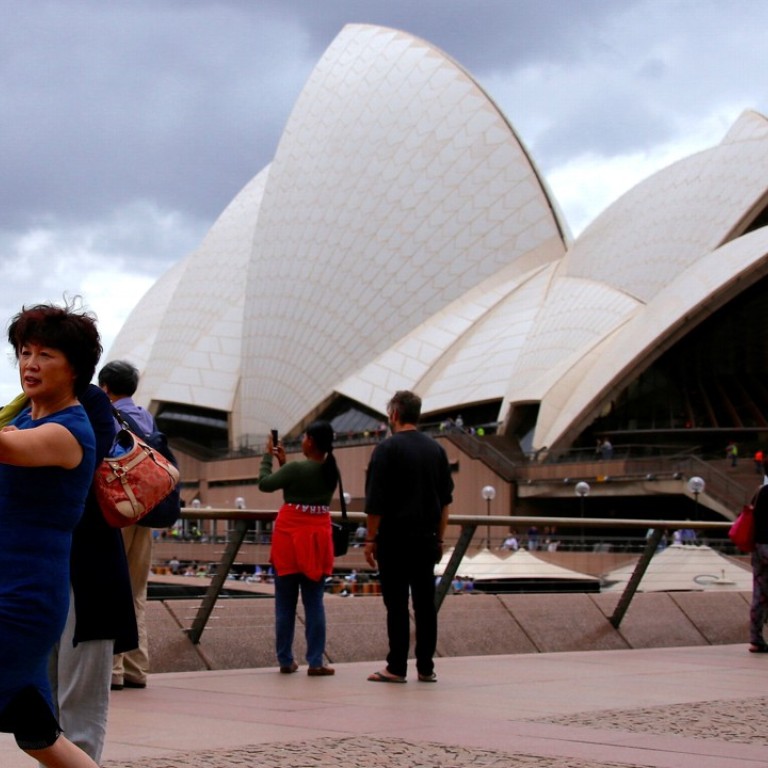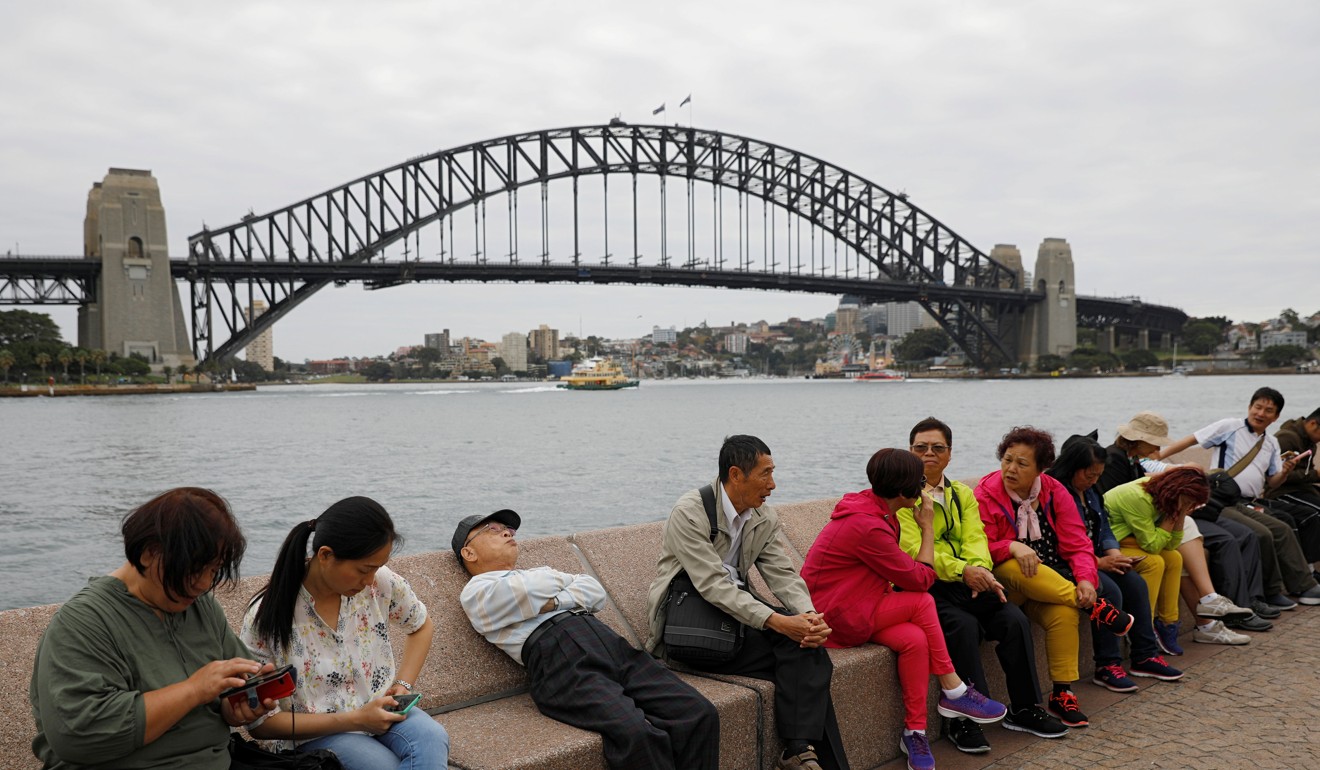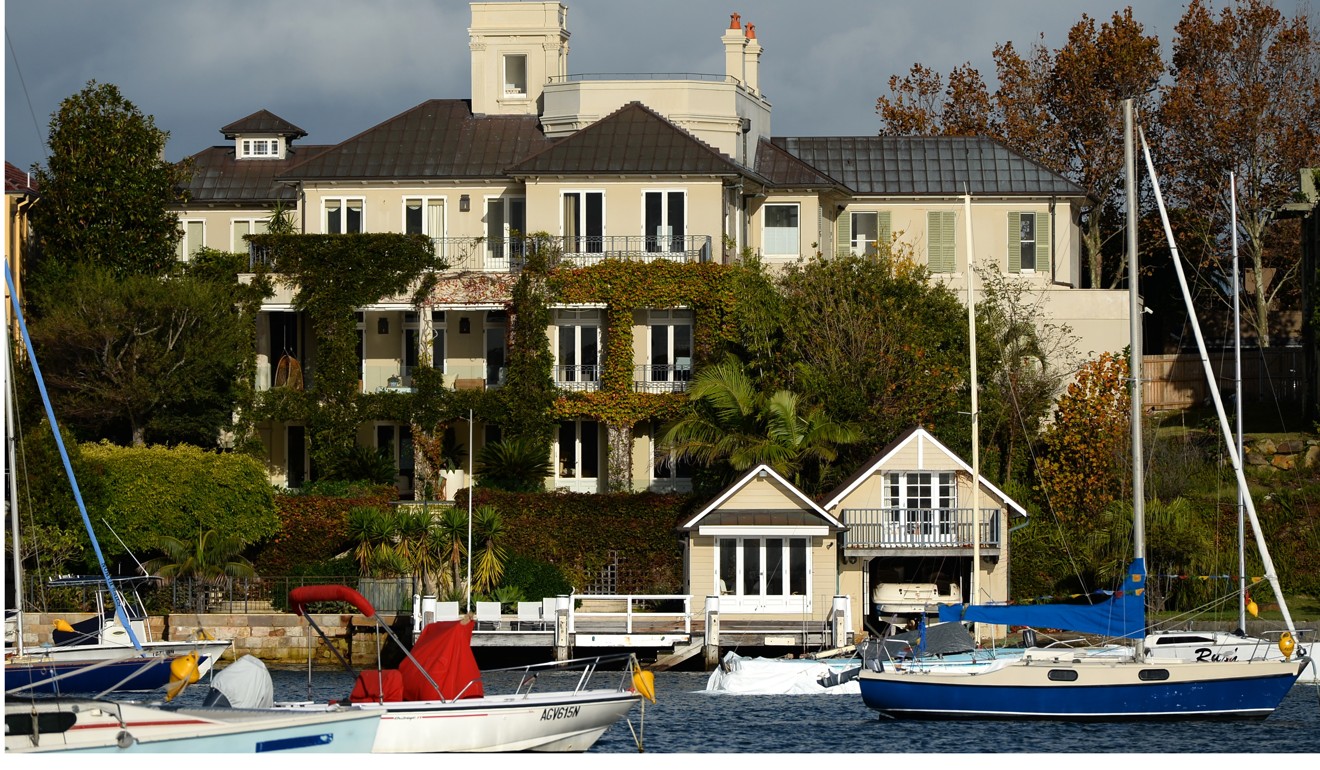
Chinese millionaires snub Australia’s US$3.8m ‘golden ticket’ visas, after rules are tightened amid fraud fears
Only about 13 ‘significant investor visas’ have been issued per month since the crackdown, down from an average of 46 a month two years ago
Australia’s controversial significant investor visa – the so-called “golden ticket” visa aimed at Chinese investors who invest AU$5 million (US$3.8 million) in Australia – is being snubbed by wealthy migrants, with applications at their lowest levels.
A Productivity Commission report in 2016 said the programme should be scrapped, suggesting it was prone to fraud and money-laundering, and brought little benefit to Australia.
Australia’s financial intelligence agency, Austrac, reported in 2016 that there were “difficulties in identifying the source of funds and wealth for customers on significant investment visas, as this wealth is often acquired in foreign jurisdictions”.

Customers on SIVs are high-net-worth individuals and some may be foreign politically exposed persons or linked to jurisdictions known to be a high risk for money-laundering
The visa allows people who invest AU$5 million in certain “complying investments” in Australia to be granted a four-year visa that can be converted to permanent residency.
In its first three years, nearly 900 SIVs were granted at a rate of about 28 a month. But concerns over the type of investments being made, and the provenance of the money being invested, led the Abbott government to introduce a raft of restrictions from July 2015, compelling investment in venture capital and keeping money out of government bonds.
In the 2015-16 financial year, the number of visas approved rose to an average of 46 a month. The rate of visa grants slowed significantly over 2016-17 to about 34 a month.
But in the past seven months, the number of visas granted has dropped to fewer than 100, at an average of only 13 a month.
Several companies across Australia advertise, specifically to foreign investors, “packages” designed to facilitate visas but agents have said the new, tighter regulations have largely extinguished demand.
A spokesman for the Department of Home Affairs said there had been no changes to the programme since 2015 but that the SIV, along with all business, investment and talent visas, was under review in response to a 2015 recommendation of the joint standing committee on migration.

The visa brings significant advantages for applicants. They need only spend an average of 40 days in Australia a year and there is no English-language requirement. Applicants can pay more if they have a low level of English.
Since the scheme started on 24 November 2012, 1,932 SIVs have been granted, with AU$9.6billion invested in complying investments, government figures show.
The Productivity Commission argued the scheme brought little benefit to Australia and was prone to fraud: “The broader economic benefits of the significant investor and premium investor visas are negligible, and any benefits accrue mainly to those visa holders and to fund managers.”
It also found that because there were no English requirements or an upper age limit for visa holders, the benefit to Australia would be less than for other immigrants.
“Overall, the case for retaining the significant and premium investor visa programmes is weak and the government should abolish these visas,” it said.
Austrac reported there are concerns over the source of funds for SIVs. It estimates there is a “medium” level of vulnerability to money laundering/terrorist financing in the financial planning sector.
“During consultations with Austrac, reporting entities highlighted the difficulties in identifying the source of funds and wealth for customers on significant investment visas, as this wealth is often acquired in foreign jurisdictions.
“Customers on SIVs are high-net-worth individuals and some may be foreign politically exposed persons or linked to jurisdictions known to be a high risk for money-laundering/terrorist financing activity.”
There are also allegations the SIV programme has been used to exploit potential visa applicants.
In documents filed in the Queensland Supreme Court, Chinese investor Li Fusheng has accused a Brisbane businessman, Seb Monsour – the brother-in-law of the former Queensland premier, Campbell Newman – of deceiving him over his AU$5 million investment, and failing to invest the money in compliant investments required for his visa.
Li has accused Monsour of “misleading and deceptive conduct” after the AU$5 million was spent in areas the Chinese businessman said he had not been told about. Monsour and his companies are defending the action.
The home affairs spokesman said all SIV applications were required to meet Australia’s security identity and character requirements, and that robust checks were made on the source of funds.
“The SIV is a multi-staged application process,” he said. “The department examines the source of funds as part of its comprehensive integrity checks, before extending an invitation to SIV applicants to make their complying investments.”

